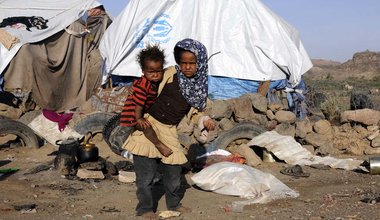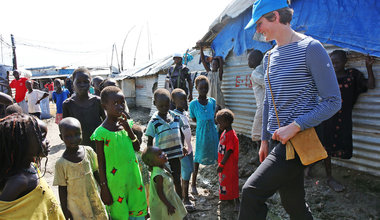Attacks against Rohingya ‘a ploy’ to drive them away; prevent their return – UN rights chief
 Brutal, well-organized, coordinated and systematic attacks have been carried out against the minority Muslim Rohingya community in Myanmar, with the intention of not just driving them away but also preventing their return, a new United Nations human rights report has revealed.
Brutal, well-organized, coordinated and systematic attacks have been carried out against the minority Muslim Rohingya community in Myanmar, with the intention of not just driving them away but also preventing their return, a new United Nations human rights report has revealed.
Based on on-the-ground interviews in Cox’s Bazar, in Bangladesh, where hundreds of thousands of Rohingya have sought refuge, the report also draws attention to a strategy to “instil deep and widespread fear and trauma – physical, emotional and psychological” among the Rohingya population.
“The [UN human rights] team documented consistent accounts of the Myanmar security forces surrounding or entering villages or settlements, sometimes accompanied by Rakhine Buddhist individuals firing indiscriminately at Rohingya villagers, injuring some and killing other innocent victims, setting houses on fire, and announcing in other villages that the same would befall them if they did not comply with the order to immediately abandon their homes,” notes the report, issued today by the Office of the UN High Commissioner for Human Rights (OHCHR).
It also cites testimony from witnesses that security forces committed extrajudicial and summary executions, rape and other forms of sexual violence, torture and attacks on places of worship.
Efforts [taken] to effectively erase all signs of memorable landmarks in the geography of the Rohingya landscape and memory in such a way that a return to their lands would yield nothing but a desolate and unrecognizable terrain
Specific attacks particularly targeted the educated in the Rohingya society such as teachers, business men, religious and community leaders – “people with influence” – in an effort to diminish Rohingya history, culture and knowledge, said OHCHR in a news release announcing the grim findings.
“Credible information indicates that the Myanmar security forces purposely destroyed the property of the Rohingyas, targeting their houses, fields, food-stocks, crops, livestock and even trees, to render the possibility of the Rohingya returning to normal lives and livelihoods in the future in northern Rakhine almost impossible,” it added.
UN rights chief urges authorities to end the ‘cruel’ security operation immediately
UN High Commissioner for Human Rights Zeid Ra’ad Al Hussein, who described the Government operations in northern Rakhine state as “a textbook example of ethnic cleansing,” also urged the Myanmar Government to immediately end its “cruel” security operation.
By denying the Rohingya population their political, civil, economic and cultural rights, including the right to citizenship, he said, the Government’s actions appear to be “a cynical ploy to forcibly transfer large numbers of people without possibility of return.”
More than 500,000 Rohingya have fled to Bangladesh since the Myanmar security forces launched an operation in response to alleged attacks by militants on 25 August against 30 police posts and a regimental headquarters.
The report, however, suggests that the “clearance operations” started before that date – as early as the beginning of August.
UN agencies, meanwhile, are working to assist the hundreds of thousands in Cox’s Bazar and other locations in Bangladesh where conditions for the refugees are extremely challenging, including little protection against the elements, limited food, water and sanitation facilities, and the risk of outbreak of disease.
 UN
UN







